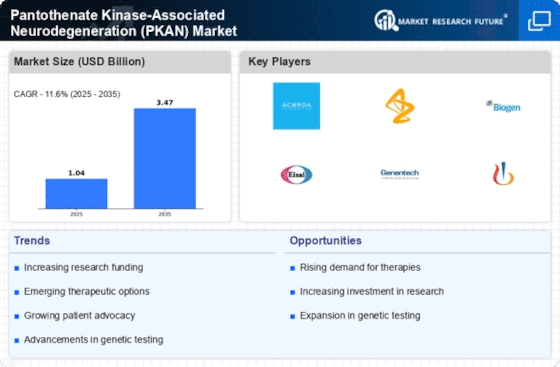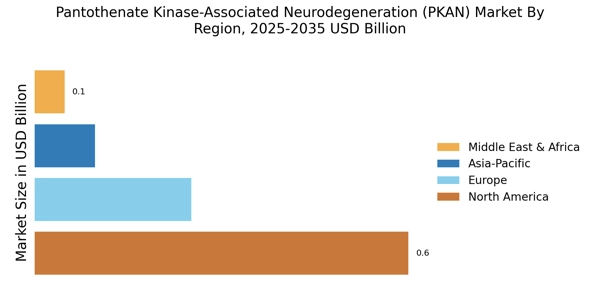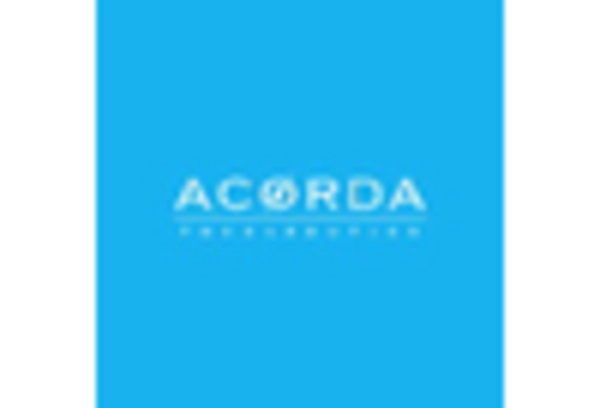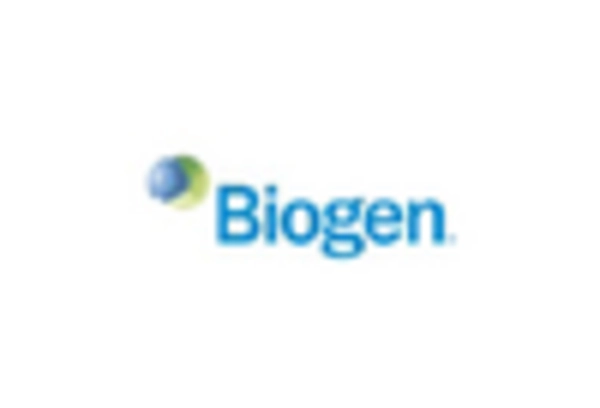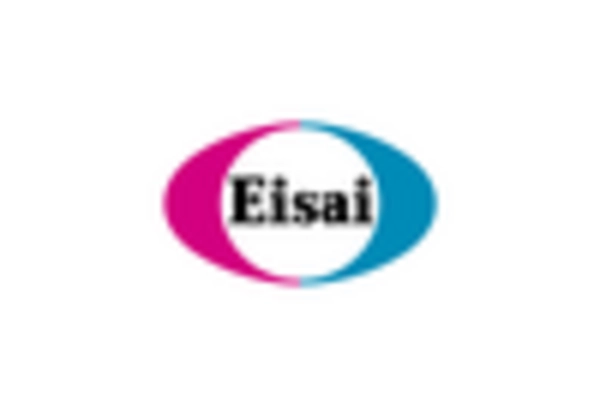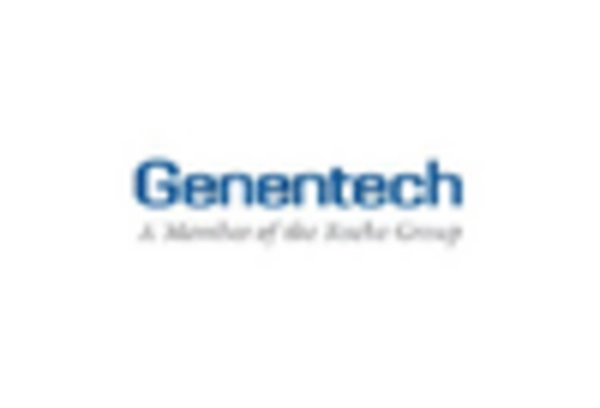Rising Prevalence of PKAN
The increasing prevalence of Pantothenate Kinase-Associated Neurodegeneration (PKAN) is a notable driver in the PKAN Market. As awareness of this rare genetic disorder grows, more cases are being diagnosed, leading to a heightened demand for effective treatment options. Recent estimates suggest that the incidence of PKAN may be higher than previously thought, with a potential increase in diagnosed cases contributing to market expansion. This rise in prevalence not only emphasizes the need for innovative therapies but also encourages pharmaceutical companies to invest in research and development. Consequently, the PKAN Market is likely to experience growth as stakeholders respond to the increasing patient population and the associated healthcare needs.
Growing Awareness and Education
Growing awareness and education surrounding Pantothenate Kinase-Associated Neurodegeneration (PKAN) are pivotal in shaping the PKAN Market. Increased efforts by advocacy groups and healthcare professionals to educate the public about PKAN are leading to earlier diagnoses and better management of the disease. This heightened awareness not only empowers patients and families but also encourages healthcare providers to seek out and offer appropriate treatments. As more individuals become informed about PKAN, the demand for specialized care and therapies is likely to rise, thereby driving growth within the PKAN Market.
Advancements in Genetic Research
Advancements in genetic research are significantly influencing the Pantothenate Kinase-Associated Neurodegeneration (PKAN) Market. The identification of genetic mutations associated with PKAN has paved the way for targeted therapies and personalized medicine approaches. As researchers continue to unravel the complexities of the disease, the potential for developing novel treatment modalities increases. This progress is likely to attract investment from biotechnology firms and pharmaceutical companies, fostering innovation within the PKAN Market. Furthermore, the integration of genetic testing into clinical practice may enhance early diagnosis and intervention, ultimately improving patient outcomes and driving market growth.
Emergence of Innovative Therapeutics
The emergence of innovative therapeutics is transforming the Pantothenate Kinase-Associated Neurodegeneration (PKAN) Market. Recent developments in drug formulation and delivery systems are providing new avenues for treatment that were previously unavailable. Companies are exploring various therapeutic strategies, including gene therapy and enzyme replacement therapy, which hold promise for addressing the underlying causes of PKAN. As these innovative treatments progress through clinical trials and gain regulatory approval, they are expected to significantly impact the PKAN Market. The potential for improved efficacy and safety profiles in new therapies may lead to increased adoption among healthcare providers and patients alike.
Increased Funding for Rare Disease Research
The surge in funding for rare disease research is a critical driver for the Pantothenate Kinase-Associated Neurodegeneration (PKAN) Market. Governments and private organizations are increasingly recognizing the need to support research initiatives aimed at understanding and treating rare conditions like PKAN. This financial backing facilitates clinical trials and the development of new therapies, which are essential for addressing the unmet medical needs of PKAN patients. As funding continues to rise, it is anticipated that the PKAN Market will benefit from a more robust pipeline of therapeutic options, ultimately leading to improved patient care and market expansion.


